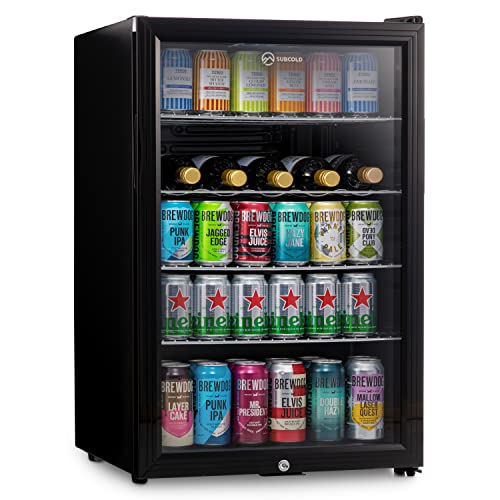The Role and Evolution of Commercial Coolers in the Modern Marketplace
In the dynamic landscape of modern commerce, the function of commercial coolers can not be overstated. Stainless Steel Fridges of devices are the backbone of different markets, from supermarkets and corner store to restaurants and health care facilities. This article looks into the significance of commercial coolers, their types, improvements, and the effect they have on organization operations.
Introduction to Commercial Coolers
Commercial coolers, also understood as commercial refrigerators, are designed to preserve a consistent and regulated temperature level environment for the storage of disposable items. Unlike home refrigerators, commercial coolers are constructed to hold up against heavy usage and are geared up with features that make sure reliability and performance in high-demand settings. They are vital for preserving the quality and safety of food, beverages, and other temperature-sensitive products.
Types of Commercial Coolers
Refrigerated Display Cases
- Vertical Coolers: Commonly found in supermarkets and corner store, these units allow customers to see and select items quickly.
- Horizontal Coolers: Often used for showing beverages and small products, these units can be either open or with glass doors.
Walk-in Coolers
- Walk-in Freezers: Large, room-sized systems developed for bulk storage of frozen items.
- Walk-in Coolers: Similar to walk-in freezers but maintain a higher temperature, appropriate for saving dairy, produce, and other perishables.
Undercounter Coolers
- Bar Coolers: Compact units designed to fit under bar counters, perfect for saving drinks and mixers.
- Preparation Coolers: Used in cooking areas for storing active ingredients and ready foods.
Bottle Coolers
- Single-Door Coolers: Ideal for small spaces, these systems are typically utilized in workplaces and small retail settings.
- Multi-Door Coolers: Larger units with numerous compartments, suitable for high-volume sales environments.
Reach-in Coolers
- Single-Door Reach-ins: Compact and efficient, these systems are perfect for small companies and restaurants.
- Double-Door Reach-ins: Offer more storage area and appropriate for medium-sized operations.
Improvements in Commercial Coolers
The technology behind commercial coolers has actually advanced substantially throughout the years, leading to more efficient and sustainable choices. Some noteworthy developments include:
- Energy Efficiency: Modern coolers are created to consume less energy, decreasing functional costs and environmental effect. Functions like LED lighting, high-efficiency compressors, and advanced insulation add to this.
- Smart Technology: Many commercial coolers now feature smart functions, such as remote monitoring, temperature level signals, and automated defrost cycles. These innovations boost functional performance and product security.
- Eco-Friendly Refrigerants: The use of eco-friendly refrigerants, such as R-290 (gas) and R-600a (isobutane), is ending up being more widespread, lowering the carbon footprint of commercial coolers.
- Customization: Manufacturers are providing more adjustable choices, allowing businesses to tailor their coolers to particular requirements, such as size, style, and functions.
Effect On Business Operations
Commercial coolers play a vital role in a number of aspects of service operations:
- Product Preservation: By keeping optimal temperature level conditions, coolers ensure that items remain fresh and safe for consumption, decreasing waste and enhancing client fulfillment.
- Operational Efficiency: Efficient cooling systems lessen downtime and upkeep expenses, permitting businesses to focus on other important operations.
- Client Experience: Well-maintained and visually pleasing coolers can enhance the shopping experience, encouraging clients to make purchases.
- Regulative Compliance: Commercial coolers help businesses satisfy health and wellness regulations, ensuring compliance and preventing penalties.
Frequently asked questions
Q: What is the difference between a commercial cooler and a family refrigerator?
- A: Commercial coolers are designed for heavy usage and are built with more robust products and advanced functions to guarantee reliability and performance in high-demand settings. Home refrigerators, on the other hand, are created for personal usage and are not geared up to handle the exact same level of usage or storage capacity.
Q: How can I guarantee my commercial cooler is energy effective?
- A: To guarantee energy performance, select a cooler with an Energy Star score, use LED lighting, maintain routine cleansing and upkeep, and think about clever functions like remote tracking and automated defrost cycles.
Q: What are the benefits of using eco-friendly refrigerants in commercial coolers?
- A: Eco-friendly refrigerants, such as R-290 and R-600a, have a lower global warming potential (GWP) and ozone exhaustion capacity (ODP) compared to traditional refrigerants. This lowers the ecological effect of commercial coolers and helps businesses satisfy sustainability objectives.
Q: How often should I clean up and preserve my commercial cooler?
- A: Regular cleaning and maintenance are essential for the optimum performance of commercial coolers. It is recommended to clean up the cooler a minimum of as soon as a month and perform an extensive upkeep check every six months. This includes examining the seals, cleaning the condenser coils, and making sure the temperature settings are precise.
Commercial coolers are indispensable in the modern marketplace, supplying vital services that guarantee the quality and security of disposable products. With advancements in technology and a growing concentrate on sustainability, these units are becoming more efficient and ecologically friendly. By comprehending the different kinds of commercial coolers and their influence on organization operations, owners and managers can make educated choices that benefit both their operations and the environment.

